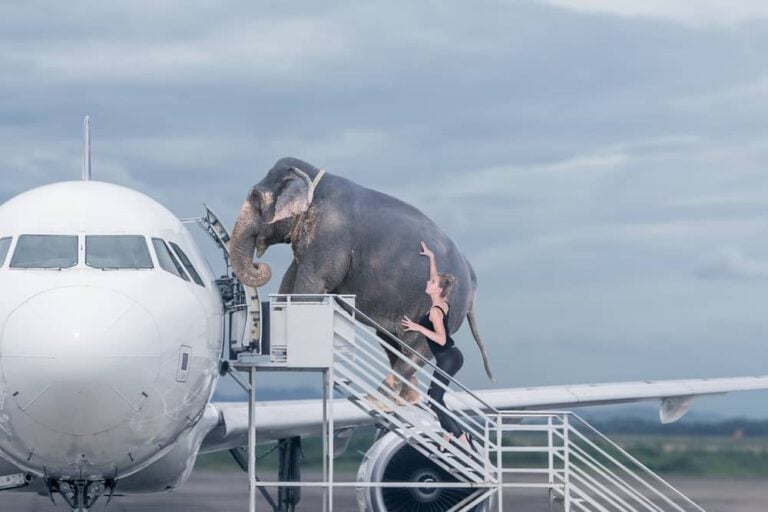“You may have many best friends but your dog only has one.” So how about moving your friend closer, to live with you in beautiful Thailand? It can look like a tough task, but once you go through this article with all regulations and necessities, you should be fine.
In this article on Importing Pets to Thailand, we will look into:
- Which vaccines are needed and when
- Necessary import and export permits
- Required documents how to handle them (originals, photocopies, or can be sent via email)
- Vaccination records and a Veterinarian Health Clearance
- Necessary containers and airline policies
- Details about Suvarnabhumi Airport, Qatar Airways, and their policies, as well as COVID specifications regarding traveling with a pet
- And last, but not least, some facts about living in Thailand with pets.
Planning and preparation – 1 month ahead
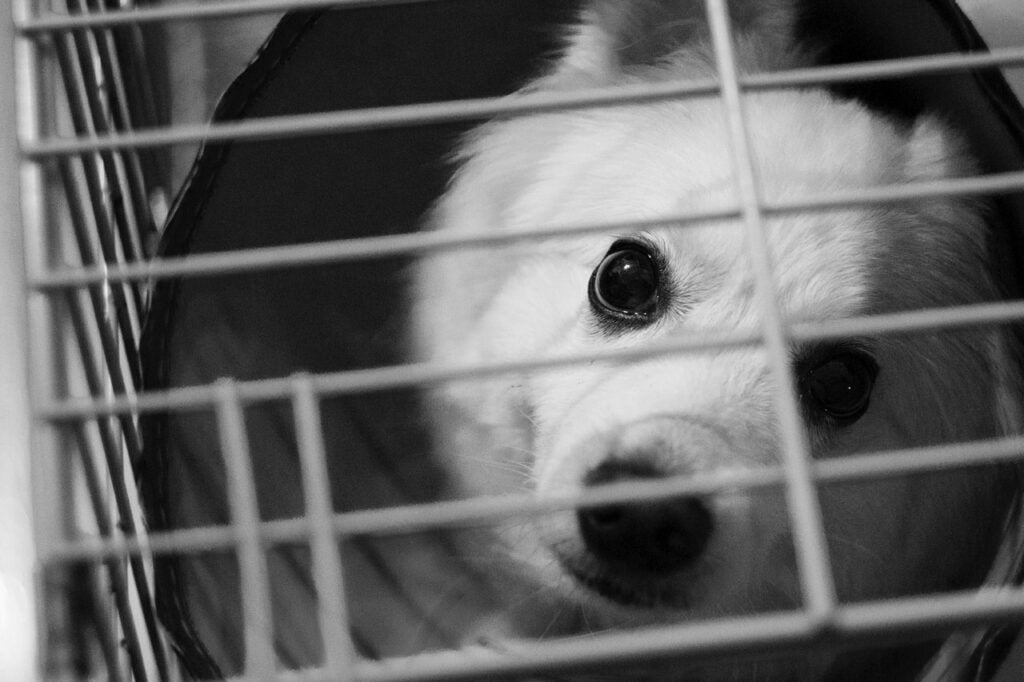
You will need plenty of time to prepare for your pet’s relocation. In case your pet hasn’t had its shots and microchip, you’ll need to start this process about 1 month before you travel to ensure that your pet receives its shots in the required window. Secure these in advance:
- Rabies Vaccine (or proof the country you are traveling from has been rabies-free for the past year) – Rabid dogs are commonly found in Thailand so this one is very useful.
- Leptospirosis Vaccine is needed at least 21 days before departure flight (or a negative Leptospirosis test within 30 days of departure) – Sounds scary? Just to explain, in Thailand, leptospirosis is primarily associated only with those who work in agricultural occupations and there are two main high-risk areas, Sisaket (SSK) and Nakhon Si Thammarat (NST), so no need to worry.
- Vaccine for Distemper (similar to a cold in humans) at least 21 days before the departure flight
- Hepatitis Vaccine is needed at least 21 days before departure flight
- Get your pet vaccinated against Parvovirus (gastrointestinal illness) at least 21 days before departure flight
- A pet microchip certified ISO 11784 with a 15 digit number – No worries, the chip is very small and your pet will not even know that it is there. Plus, it could help you identify it in case it goes missing.
- If you want to travel with a cat, make sure that it is vaccinated against Feline Panleukopenia Virus (FPV)
Pets need documents, too
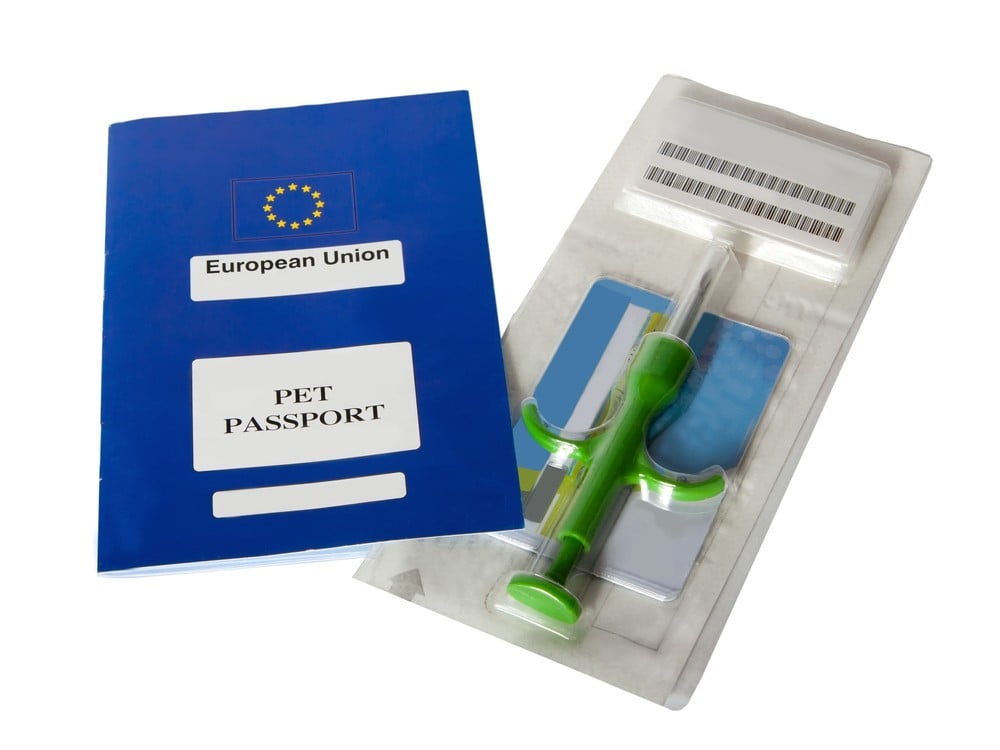
Make sure that the vet includes these in the Vaccination Record, along with the microchip number.
Besides the vaccines, anyone wishing to bring animals to Thailand must apply and obtain an import permit from the Ministry of Livestock Development (DLD) at least 15 days before the pet enters the country. This import permit is valid for 60 days. You can do this online, which is very handy. Just confirm that they got the documents, and afterward you’ll receive scanned copies via email – at least 7 days before your trip. Documents they need from you are:
- a photocopy of your passport
- an original pet vaccination record (and a pet passport, if applicable)
- an original official health certificate
- a photocopy of printed import permit
With these, you may apply for an official health and export certificate with the authorized body of the exporting country responsible for the import and export of animals (Animal and Livestock agency of your country or the country you are leaving Thailand for)
Check the validity period of your country’s export: for some countries, it is only 4 – 7 days after issuance, for some, up to 30 days.
It is also good to contact the animal quarantine department of your airport of arrival. For example, if you fly to Suvarnabhumi Airport, contact their Suvarnabhumi Airport Animal Quarantine Department, between 1 week and 3 months before arrival. The sooner, the better. Again, online communication is sufficient. They just need the import request that can be found here.
Planning and preparation 72 hours before the flight
You and your furry friend will need to see the vet again. No needles this time – the vet will just issue a Veterinarian Health Clearance, stating if your pet is fit to fly, how many pets are traveling, as well as their species, breed, sex, age, and coloration, plus your personal information, such as name, and address. There are currently no breeds restricted for Thailand but Pitbulls should be spayed or neutered. It is recommended to confirm this with local authorities.
We also recommend making sure that you have everything ready per the airline policy, such as a pet crate, that is nose and paw proof. The usual requirements are that the length of container = Length of the animal + half the length of their legs. The height of container = Height of the animal and the Width of container = Width of the animal’s shoulders times two. The container should also be big enough for the comfort and safety of your pet, preventing its escape and having sufficient ventilation openings.
You can read more about airline policies regarding pet transport further in the article.
Day of your flight
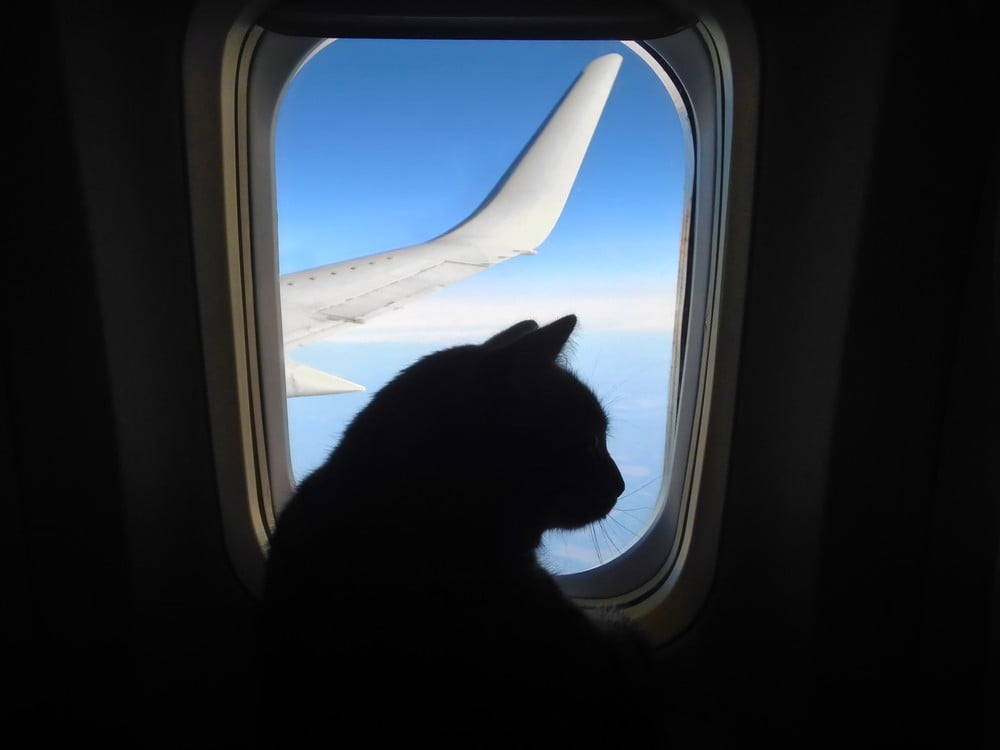
The airport staff will confirm that your pet or pets are listed on their manifest and a representative of the local Animal and Livestock Department will ask to see your paperwork, mostly the import/export approvals and vaccination records. They’ll approve these papers and then you’ll be able to check in your pets! Make sure their water and food bowls are filled.
After arrival you need to make 3 stops in total:
STOP 1
After you will land and pass through all the security checks and COVID checks for humans, head to the oversize baggage claim area. At Suvarnabhumi airport, it is located to your left as you enter the baggage claim area and the pickup process is simple.
STOP 2
Afterward, you can move to the Animal and Livestock Department and they will check all the documents in 30 – 45 minutes. Again, to remind you, they need to see these original and signed documents:
- Import approval
- Export approval
- Vaccination records including the microchip number
- Last veterinarian clearance stating that your pets are in good health.
If everything goes well (as it should, if you have all paperwork in order) you need to pay a 1,000 THB fee per animal, which is about 32 USD. Then they’ll issue you an approval paper and you can move towards custom clearance.
STOP 3
The customs desk is located near the exit of the baggage claim area. The customs officer will take the approval paper from the Animal and Livestock department and ask if the animal has been imported to Thailand before. If so, then you should have a customs receipt that you can present and you can enter Thailand. If it is your first time, your pet will get inspected (usually very briefly) and you will pay for the customs receipt, which is 300 THB. Keep this receipt so you can re-enter the country with your pet again if needed.
If you have other questions about the airport procedure, head to this website.
And that it is it, you are in Thailand. However, during these COVID times we live in, you need to meet the pet hotel staff outside the airport and hand them over. You might get escorted by the airport staff member but worry not, it is a standard procedure. Then you are free to go… to your quarantine facility. 🙂
Traveling during COVID
With that said, if you need to travel to Thailand during COVID, know that currently travelers are required to quarantine for 14 days, but with vaccines, this is prone to change. . We recommend checking the current rules and specifications for entering Thailand here. Your pets can quarantine in pet hotels, such as K9 Bangkok.
Airline recommendations for your trip to Thailand
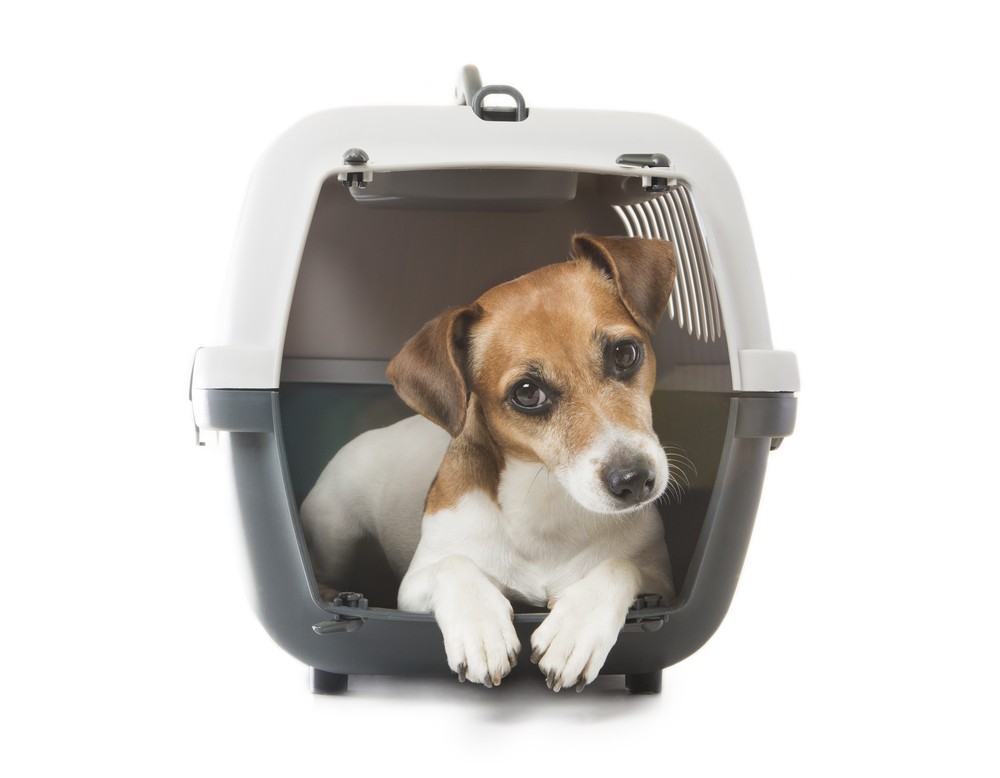
Keep in mind that most airlines require that you call them at least 3 days before departure to let them know that you are bringing pets with you and travelers highly recommend doing it even sooner. This is important as the airline will confirm that the flight is capable of accepting pets in the hold (it’ll need to be pressurized and temperature controlled) and they’ll, of course, need to charge you the extra fees. Apart from the fee, you can pick your airline based on tips from travelers. Many of them are recommending Qatar Airways, awarded Diamond Standard APEX, and in previous years even Airline of the Year by Skytrax.
Qatar Airways
What is there to know about traveling with pets on Qatar flights?
Benefits are definitely the price and that the airport staff makes sure that animals can get out of the container, stretch, have water and food while waiting for the transfer in Doha, which is praised by many travelers. Qatar also responds to any questions you might have. They care and for the safety and comfort of the animal, they recommend transporting your pet as cargo during the hotter months (May-October).
However, the airline does not accept animals younger than 12 weeks, weak or sick animals, pregnant animals, or rodents. Qatar also does not accept certain breeds that are prone to heatstrokes, such as Persian cats or pugs. You can find the complete list on their website
Of course, there are many more airlines, depending on where do you fly from… Eva Air, Turkish Airlines, KLM, Qantas, Air France, and so on. We picked just one, as they are verified and often cheaper. Talking about price:
Is importing pets to Thailand costly?
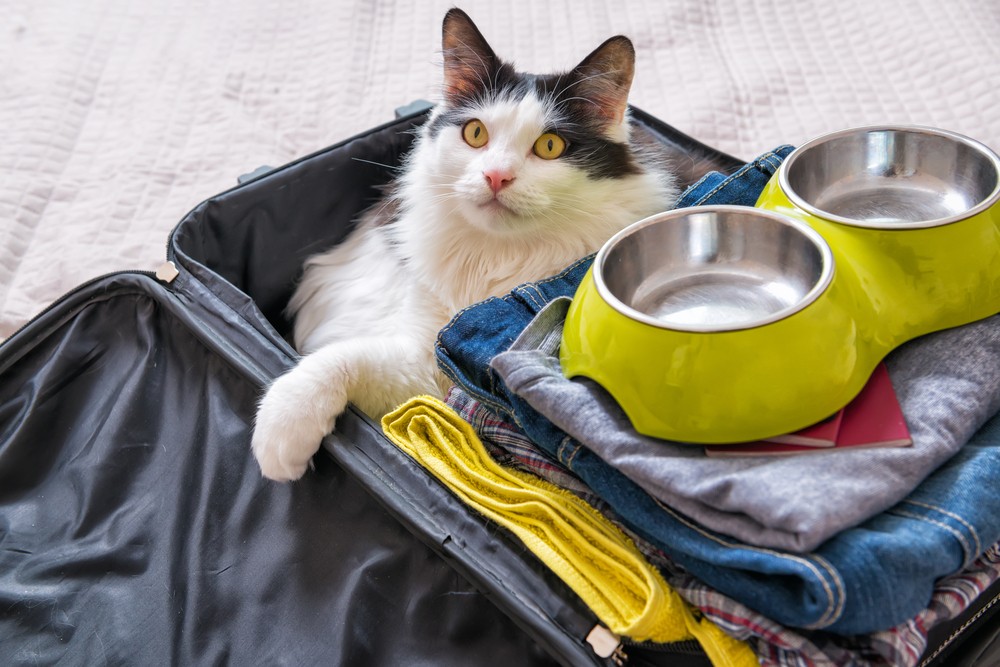
“Whoever said diamonds are a girl’s best friend never owned a dog.” But how about bringing it to Thailand? Does it break the bank? Let’s have a look.
If we compare the costs to Emirates, for example, Qatar offers fair prices. After all, Emirates charges you depending on the weight and size of the animal plus cage combined, which is 500 USD for animal and cage below 23 kg and 800 USD for 24 to 32 kg. However, the fee at Qatar depends on your country of origin and the route that suits you. We always recommend contacting the airline directly.
And what about the previously mentioned paperwork? Those prices depend on the Animal and Livestock agency of your country and your vet.
How is life for pets in Thailand?
Your life will improve by having your best bud with you. Scientists say that pets lower stress levels, increase work productivity, give you a reason to exercise or even socialize. But how about your pet? Will it enjoy Thailand? Is it safe?
It is fairly safe. There are clauses in Thai legislation that state that those found guilty of cruelty to animals may be fined 1,000 Thai baht (32 USD)
In case your pet is lost, it is recommended to contact the BMA’s Dog Control Department in Bangkok or the local government district office called Bor Tor or Thesaban.
Many apartments or condos do not accept pets, so you might need to opt for a house. Of course, this depends on the place you will live in and the landlord. If you will rent a house a fenced property is advised as Thailand like many Southeast Asian countries still faces a problem with stray dogs. There are many animal rescue centers that you can visit, donate to, or volunteer at if you would like to.
How about animal-friendliness, then? Thailand is a “sabai sabai” country, which means very comfortable and chilled. Only some public parks and national parks restrict entrance for dogs. People in general like dogs, though. Trendy and small breeds such as French bulldogs or corgi are especially loved here.
Transportation and temperatures might take a bit of time to get used to but we believe that with a bit of practice and AC, your furry friend will love motorbike trips and chilling with you.
Enjoy Thailand!

